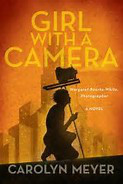I had read two of Japanese author Yoko Ogawa’s books before making my foray into Hotel Iris: The Housekeeper and the Professor (review), and Revenge (review). The Times Literary Supplement writes that in this particular novel, ‘Image by perfect image, we are led down into a mysterious and gripping universe, simultaneously beautiful and terrifying’. The Independent goes on to say: ‘This is a brave territory for Ogawa, and she manages it with sharp focus; she creates moments of breathtaking ugliness, often when least expected… but also sometimes a longing that is touching and tender’. Hotel Iris was first published in Japan in 1996, and in its English translation in 2010.
Hotel Iris, the third of Ogawa’s books to be translated into English, centres upon Mari, a seventeen-year-old who works on the front desk in a ‘crumbling, seaside hotel on the coast of Japan’. One night, a middle-aged man and a prostitute are ‘ejected from his room’. Mari finds herself infatuated with the man’s voice. Just so you, dear reader, are warned, what follows is rather harrowing. After several clandestine meetings, Mari is drawn to his home, where he ‘initiates her into a dark realm of both pain and pleasure’.
Mari is as perceptive a narrator as Ogawa is a writer; of the prostitute, she observes: ‘Frizzy hair hung at her wrinkled neck, and thick, shiny lipstick had smeared onto her cheeks. Her mascara had run, and her left breast hung out of her blouse where the buttons had come undone. Pale pink thighs protruded from a short skirt, marked in places with red scratches. She had lost one of her cheap plastic high heels’. When her male companion first appears, the following is described rather lyrically: ‘The voice seemed to pass through us, silencing the whole hotel. It was powerful and deep, but with no trace of anger. Instead, it was almost serene, like a hypnotic note from a cello or a horn’.
The novel is told from Mari’s perspective, and we learn an awful lot about her. At first, she comes across as a little naive, but she is soon cast under the translator’s spell, and allows him to do whatever he wants to her: ‘Indeed, the more he shamed me, the more refined he became – like a perfumer plucking the petals from a rose, a jeweler prying open an oyster for its pearl’. Like the Professor in Ogawa’s aforementioned novel, we are never given the man’s first name; rather, he is identified only by his profession, and known therefore as ‘the translator’. The passages which include him tend to be rather sinister at times: ‘The translator’s hand was soft. So soft it seemed my hand would sink completely into his. This hand had done so many things to me – stroked my hair, made my tea, stripped me, bound me – and with each new act it had been reborn as something different’. He is a peculiar and rather complex character, who made me feel uncomfortable throughout. Ogawa has included an interesting contradiction when writing about him; whilst he revels in violent acts with her, his correspondence to Mari expresses a real tenderness.
As in her other books, some of Ogawa’s prose in Hotel Iris is deceptively simple. The novel feels markedly different from The Housekeeper and the Professor, which has a wonderful, quiet beauty. There is violence in Hotel Iris, and I found a couple of the scenes incredibly disturbing, something which I was not expecting. Perhaps it just asserts what a diverse and skilled writer Ogawa is that she can write two very different novels in so confident a manner. Hotel Iris is, I would say, far closer in its themes and occurrences to Ogawa’s short story collection, Revenge.
Hotel Iris is a continually interesting and unsettling novella, which becomes rather disturbing in places. I tend to shy away from such novels, and whilst I did enjoy this overall, and have rated it highly, I cannot help but be glad that my usual reading fare is unlike this. I found the reading process rather exhausting, despite the fact that I easily read it over a single afternoon. Well plotted and multilayered, with a cleverly rendered ending, Hotel Iris is well worth seeking out, but it’s not something which I would recommend for the faint of heart!
Purchase from The Book Depository
Advertisements Share this:




